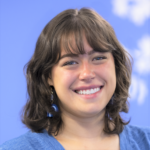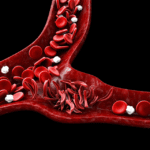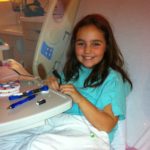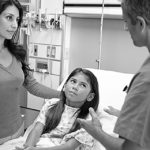Featured Researcher — Genevieve Kendall, PhD
Featured Researcher — Genevieve Kendall, PhD https://pediatricsnationwide.org/wp-content/themes/corpus/images/empty/thumbnail.jpg 150 150 Natalie Wilson Natalie Wilson https://pediatricsnationwide.org/wp-content/uploads/2021/06/Natalieheadshot3-2.png- July 07, 2021
- Natalie Wilson
Genevieve Kendall, PhD, is a principal investigator in the Center for Childhood Cancer and Blood Diseases and an assistant professor of Pediatrics at The Ohio State University College of Medicine. Dr. Kendall and her lab focus on developing basic and translational models of pediatric sarcomas—devastating and aggressive solid tumors with limited treatment options. Specifically, they study fusion-driven rhabdomyosarcoma, which is thought to arise from problems during skeletal muscle development. They use cell culture and transgenic zebrafish systems to understand the underlying biology of the disease and identify molecular targets for treatments and ultimately improve outcomes for children with cancer.
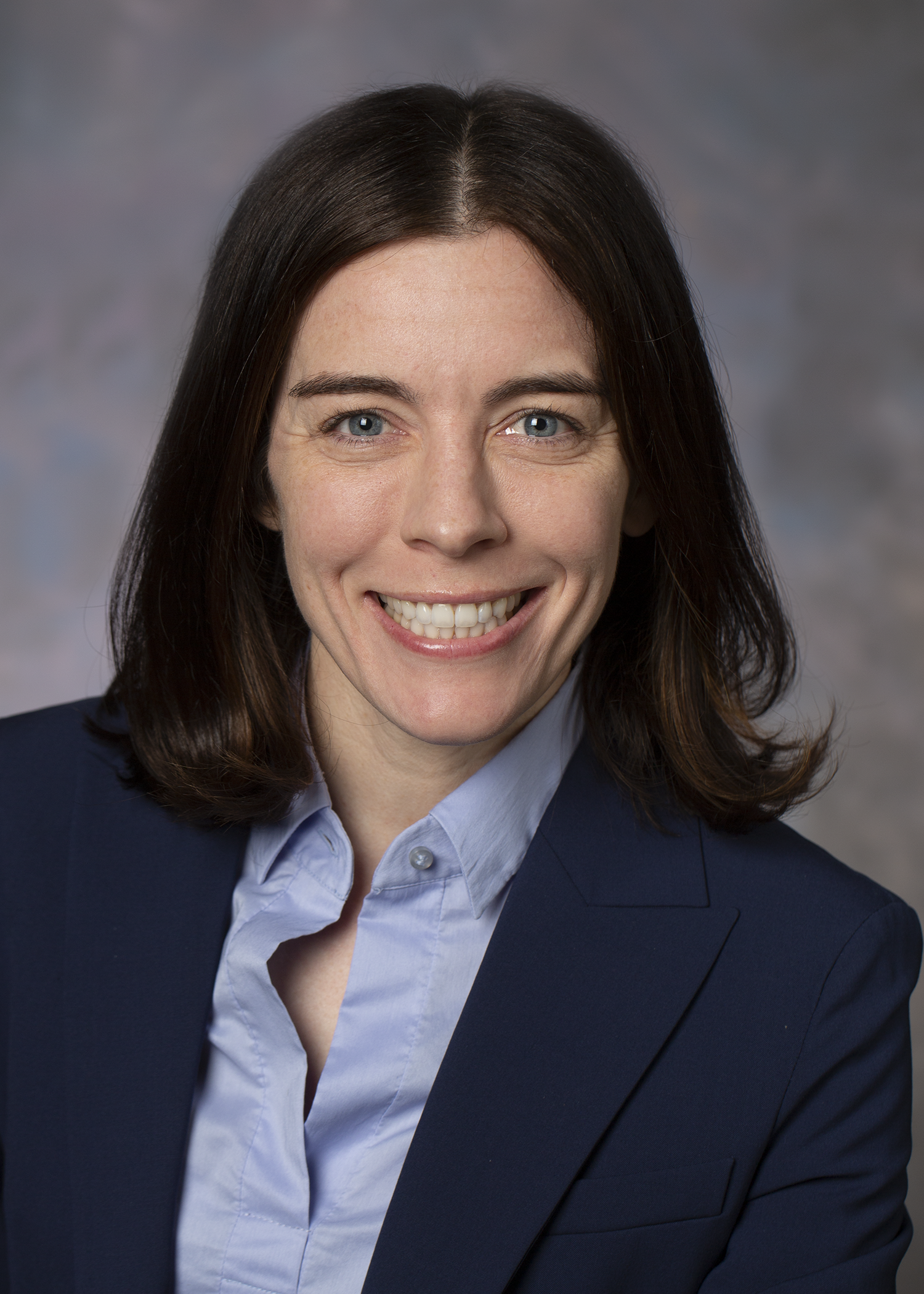
Dr. Kendall received her bachelor’s degree in Cell and Molecular Biology at Texas Tech University, where she was a Howard Hughes Medical Institute Undergraduate Research Fellow. She obtained her doctorate degree in Molecular Biology at the University of California, Los Angeles (UCLA), before focusing on pediatric oncology during her postdoctoral studies working with James Amatruda, MD, PhD, at UT Southwestern Medical Center.
Read on to learn more about Dr. Kendall and her research journey.
What was your path to your current role?
I’ve always known I wanted to be a scientist, but it was during my research career that I realized I wanted to use that work to help kids with cancer by better understanding the disease to design improved targeted therapies.
I had 16 years of undergraduate, doctoral and postdoctoral research experience before my current role, and each stage helped position me for my next steps. As an undergraduate, I worked in a mammalogy lab studying the phylogenetics of bats from Central America and the long-term genetic consequences of the Chernobyl nuclear meltdown on small mammals from the area. I enjoyed asking scientific questions and working in the lab but wanted a career where I was helping kids through my research. This is what motivates me and the questions I ask in the lab every day.
I decided to attend UCLA for my doctoral research. I worked in the laboratory of Stanley Nelson, MD and Carrie Miceli, PhD, initiating a program to identify new drug combinations that synergized with exon skipping strategies for Duchenne muscular dystrophy (DMD). I enjoyed working towards finding treatments that could help children.
For my postdoctoral research, I wanted to ask challenging questions that I would be able to continue investigating as I started an independent position. I contacted Jim Amatruda, MD, PhD, at UT Southwestern Medical Center and proposed initiating a project in his group focused on a pediatric muscle cancer, rhabdomyosarcoma, using zebrafish and cell culture based models.
In Dr. Amatruda’s lab, I leveraged my previous experience in skeletal muscle biology and drug discovery and built new skill sets to address unmet needs in pediatric sarcoma. I also attended a zebrafish development and genetics course at the Marine Biological Laboratory a nonprofit affiliate of the University of Chicago in Woods Hole, Massachusetts, to learn how to work with zebrafish during my postdoctoral training.
Why did you decide to pursue your work at Nationwide Children’s Hospital?
I became interested in starting my independent career at The Ohio State University and Nationwide Children’s because of our shared vision: to create the best outcomes for children everywhere. I thought I could significantly contribute to that vision as I built my research program.
When I was interviewing for independent positions, I considered both research vision and institutional culture. I met Stephen Lessnick, MD, PhD, director of the Center for Childhood Cancer and Blood Diseases, years ago and reached out to him directly about a position in his center. I knew he was the type of center director I wanted to work with. Then, when I visited, I was inspired by the vibrant clinical and research community here and its focus on things I care deeply about — sarcoma and pediatric cancer, genetics and epigenetics, and muscle disease — as well as its strong commitment to advancing zebrafish research.
Lastly, my center — and Nationwide Children’s as a whole — is incredibly supportive of new faculty. People enjoy working here and celebrating each other’s successes. It’s been a wonderful experience!
You’ve mentioned working zebrafish a couple of times. Can you explain how you got started with zebrafish research and how it benefits patients?
In my doctoral research, I used primary patient derived cells and mouse models for my research. Then, at a conference, I heard a talk that inspired me to pursue generating and using zebrafish models for translational research and as a complement for drug discovery efforts. After that, I was “hooked”, and during my postdoctoral research augmented my disease modeling skill sets by learning to work with zebrafish.
Fun Facts About Dr. Kendall
What would be your dream job if you could do anything?
My current job is my dream job! My mom is quick to remind me (and tell others) that I’ve wanted to be a scientist since I was in the second grade. But if I had to pick something else, I would like to be a novelist.
What’s your favorite food?
My favorite food is ramen; when I travel, I am always trying to find the best ramen spots. I doubt anything will top the veggie ramen I had on Ramen Street in Tokyo Station!
Favorite band/genre/artist?
When I’m writing, I almost exclusively listen to Radiohead. And when I want to unwind, I listen to 90s hits.
Favorite way to relax?
Getting outside is my favorite way to relax, whether it’s via a quick walk around the neighborhood with my husband and dog or a more adventurous hike. Ohio is beautiful, and I’ve found it’s possible to comfortably explore year-round — with the right gear! (I moved here from Dallas and lived in LA before that, so the winter weather looked a bit different.) I love to hear others share their favorite hikes in the area — send them my way!
If you could meet anyone (from history or who’s alive today), who would you meet?
I’d like to meet Rosalind Franklin, PhD, whose work was central to our early understandings of the molecular structures of DNA, RNA, viruses and more. She was a brilliant scientist and a strong and successful woman that helped pave the way for more women to pursue careers in science.
AWRI is committed to becoming a world leader in using zebrafish to study and treat pediatric disease, as evidenced by our new zebrafish aquatics facility, featured in the video, and the excellent care the fish are provided by our Animal Research Core (ARC). I’m very fortunate to work with our ARC team and am proud of what we’ve accomplished. We’ve established a significant community of zebrafish researchers at The Ohio State University and Nationwide Children’s now and are actively recruiting more.
Our goal working with zebrafish systems is not to cure fish, but to understand the disease in the context of a representative vertebrate system so that I can help children with cancer. The long-term goal is that our zebrafish models can inform patient care in real time.
What is your favorite part of your role?
I have a few things that are tied as my favorites: I enjoy asking challenging questions and having those “aha!” moments when I figure things out. I’m also motivated by knowledge that my work can directly lead to improvements in patient outcomes for children fighting cancer. And in leading my lab, I get to share these victories while inspiring the next generation of scientists. I enjoy working with trainees: helping guide them, cheering them on and providing a foundation to grow their independence. All the members of my lab are so talented, and I am very proud of all that we’re accomplishing together.
About the author
Natalie is a passionate and enthusiastic writer working to highlight the groundbreaking research of the incredible faculty and staff across Nationwide Children's Hospital and the Abigail Wexner Research Institute. Her work at Nationwide Children's marries her past interests and experiences with her passion for helping children thrive and a long-held scientific curiosity that dates back to competing in the Jefferson Lab Science Bowl in middle school. Natalie holds a bachelor’s degree in sociology from Wake Forest University, as well as minors in women's, gender & sexuality studies and interdisciplinary writing. As an undergraduate student, Natalie studied writing and journalism, engaged with anthropological and sociological research with a focus on race and ethnic relations, served as executive editor for the student newspaper, the Old Gold & Black, and gained marketing experience as an intern for a nonprofit entrepreneurial incubator, Winston Starts, as well as by working for Wake Forest University School of Law Office of Communication and Public Relations and its Innocence and Justice Clinic.
-
Natalie Wilsonhttps://pediatricsnationwide.org/author/natalie-wilson/
-
Natalie Wilsonhttps://pediatricsnationwide.org/author/natalie-wilson/
-
Natalie Wilsonhttps://pediatricsnationwide.org/author/natalie-wilson/
-
Natalie Wilsonhttps://pediatricsnationwide.org/author/natalie-wilson/
- Post Tags:
- Center for Childhood Cancer
- Posted In:
- Featured Researchers



